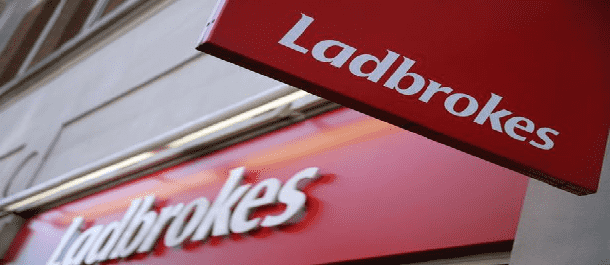A Good-News, Bad-News Week for Ladbrokes in the UK
It’s been an up-and-down run in recent days for the mighty Ladbrokes in the United Kingdom. On one side, the UK’s Competition and Markets Authority (CMA) has given its thumbs-up to the in-progress acquisition of Ladbrokes Coral by GVC Holdings, Ltd, which was one of the few remaining steps that mega-deal needed to clear. But on the other side, the UK Court of Appeals has dismissed a final appeal stemming from the original Ladbrokes company over a long-paid £71 million (US $100 million) fine in connection with illicit tax deductions the company took a decade ago.
The good news first. Ladbrokes Coral’s sale to GVC wasn’t expected to sale through regulatory approval without a few bumps, including the messy matter involving the UK FOBT controversy that caused Ladbrokes Coral and GVC to create a four-tiered acquisition structure, just to get the deal done.

All that FOBT uproar didn’t enter into the CMA’s evaluation, seemingly, which instead focused on the chances that the deal could cause a market monopoly. Reports suggest that the recent FOBT maximimum-wager trimming will result in some closures of land-based betting shops across the country, but whether that will be tens or hundreds of shops depends on the source.
Nonetheless, the FOBT cutback won’t do anything to the Ladbrokes part of the land-based market equation but decrease, probably slightly, Laddies’ brand presence.
The CMA’s primary focus instead shifted to the market stance of the acquiring firm, GVC. And there, the CMA found no significant overlap. GVC is already a strong online force, having acquired several prominent brands in previous deals. Ladbrokes, by contrast, has been a weak online player — it’s one of the main reasons why the firm was so ripe for a takeover.
The same holds true in reverse for the UK’s land-based betting shops. Ladbrokes is the UK’s second-largest sports betting brand by shop count, while GVC doesn’t have any at all, prior to the deal.
This apples-and-oranges marriage works fine both ways, according to the CMA. As they described it:
GVC has a small presence in the UK and only offers services online. The CMA has found that GVC and Ladbrokes are not close rivals and there are many other providers of betting and gaming services online.
The CMA looked closely at betting services for individual sports and individual games but found that, in all cases, there will be enough rivals to the merged entity to prevent price increases or a reduced quality of service as a result of the merger.
The merger will therefore not be referred for an in-depth investigation.
If only all the Ladbrokes news in recent days was as good. The dismissal of Ladbrokes’ claim by the UK Court of Appeals has risen through the English court system for a decade, and it involved an accounting scheme crafted for Ladbrokes by its accounting-advisory firm at the time (2008) Deloitte. The scheme involved the creation of multiple “transacting subsidiaries” associated with Ladbrokes for the sake of issuing what appears to have been paper-only loans, just for a tax writeoff.
Deloitte served up the same scheme for several of its corporate clients in the UK, and every single one of them has had to pony up back taxes to the UK Revenue & Customs (HMRC) department. Ladbrokes was one of the last firms fighting the back-tax ruling, finally appealing the matter to the UK Court of Appeals last year.
Ladbrokes had already paid that £71 million, so it won’t have any effect on the company’s future spreadsheets, but the Court of Appeals dismissal represented the final stop for the case. Ladbrokes claimed throughout the case that it was following the law as it existed in 2008, though Deloitte, the accounting firm, clearly took a liberal reading of the tax code to create the loophole, which was immediately closed by the UK’s tax authorities the following year.
Ladbrokes joins nine other former corporate customers of Deloitte who discovered the tax loophole was a little too good to be true. Meanwhile, HMRC celebrated a bit upon the Court of Appeals dismissal.
According to HMRC, in recent court papers, “We are pleased that the Court of Appeal supports HMRC’s view that Ladbrokes were attempting to avoid corporation tax. Avoidance schemes like this just don’t work and HMRC will always take firm action against them. HMRC wins nine out ten avoidance cases we take to court.” In this Deloitte-centered matter HMRC’s count was actually 10-for-10, posting a clean legal sheet, as the taxmen often do.





